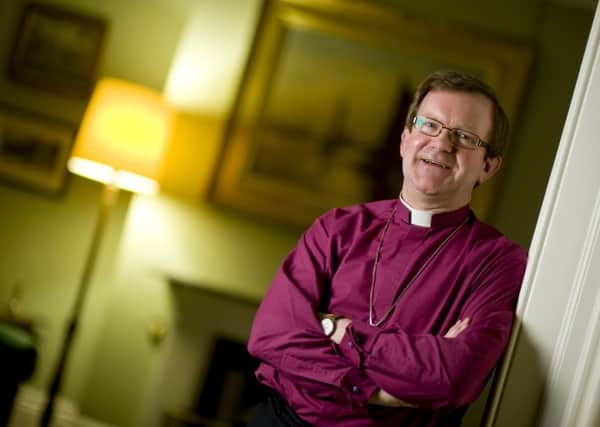Christmas message from the Anglican Bishop of Portsmouth


It been a year of suffering and violence, such as in Syria and Yemen, the year when we’ve lost much-loved talents like Victoria Wood and Prince, and the year in which Brexit and Donald Trump have created huge amounts of uncertainty as we head into 2017.
That sense of fear and uncertainty about the future can – unfortunately – easily lead to a feeling in our society of “us versus them”.
Advertisement
Hide AdAdvertisement
Hide AdWe’ve seen it in the response of some to refugees fleeing from conflict in the Middle East, in slogans bandied about in the EU referendum and US presidential campaigns, and increasingly on the front pages of some of our newspapers. Anxiety about the future easily leads us to blame those who don’t seem to be like us.
The startling claim about Christianity is that God actually became one of “us”. The Christmas story tells us that he became a human being and lived on earth like us. One of the names given to Jesus is Emmanuel, which means “God with us”.
As we read on, we discover that, although he was one of “us”, he also identified with “them”. Even before his birth, his mother faced the outsider’s shame of carrying a child most believed to be illegitimate.
The one Christians call the King of heaven, with all the riches of the world at his disposal, was born into the poorest of families. When that family arrived in Bethlehem they were treated not to a lodging house with even the most rudimentary of beds, but outside normal accommodation in a stable with the animals, and their child was placed in a feeding trough.
Advertisement
Hide AdAdvertisement
Hide AdTheir only visitors were people excluded from the Jewish temple – shepherds considered unclean because they had to work on the Sabbath, and the foreign wise men. Later they joined the ranks of refugees, the ultimate outsiders, fleeing from Herod’s persecution to the land of Egypt.
At Christmas, we’re all invited to come and kneel at the crib of Jesus. And if we decide to do that, we will be choosing, like Jesus, to come alongside the shepherds and the wise men, the outcasts and the strangers. We will be choosing to identify ourselves, not with the rich or powerful, the ones who get to decide who is in or out, but with the excluded, the vulnerable, and the rejected.
Why on earth would anyone want to do that? But the Christian faith says that in this identification with the outsider, when we’re invited to kneel together before Jesus, is the place of ultimate belonging - to a family that can never reject us and to a love that will never turn away.
I pray that you experience something of God’s love at the end of a tumultuous year – and that you have a Happy Christmas.